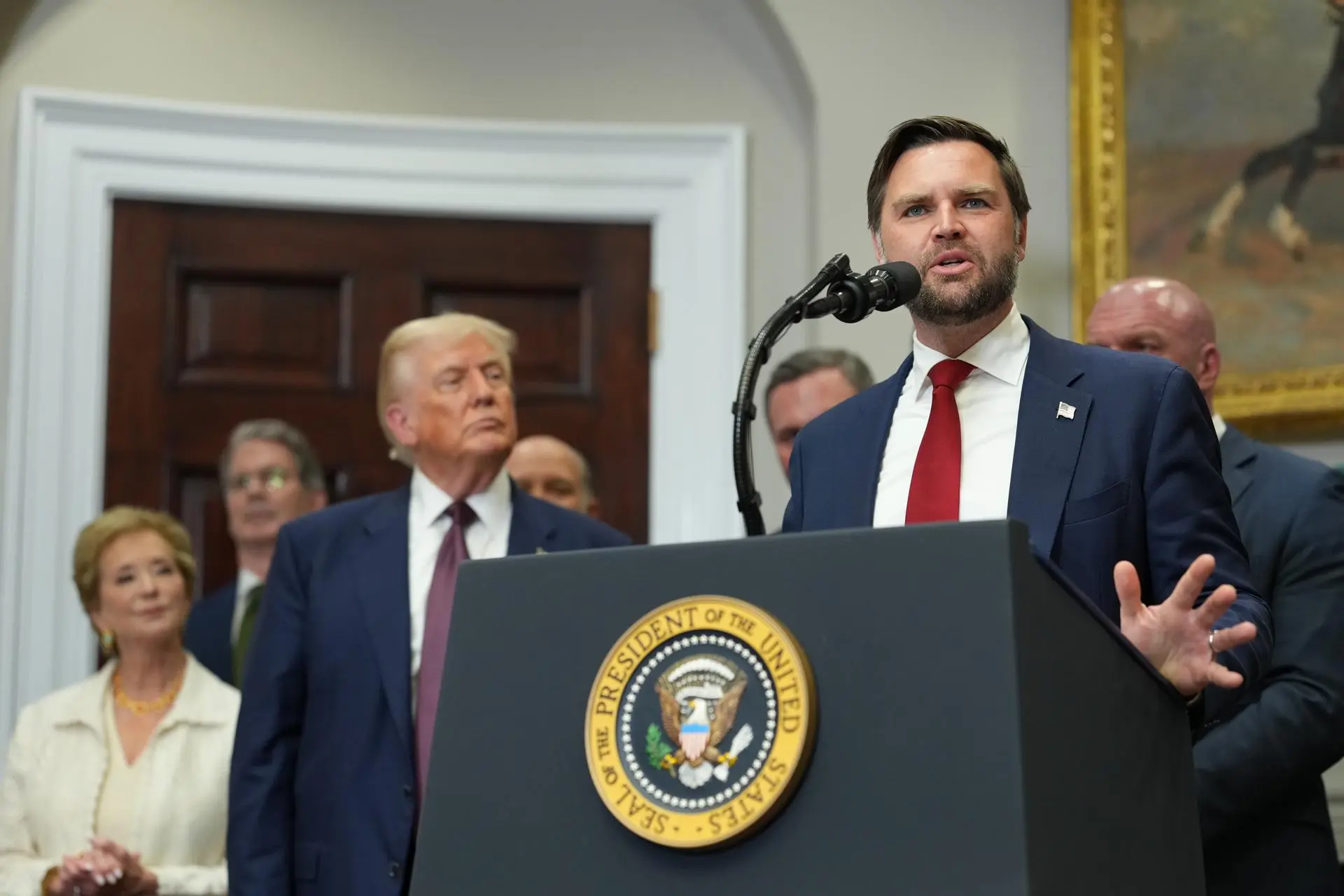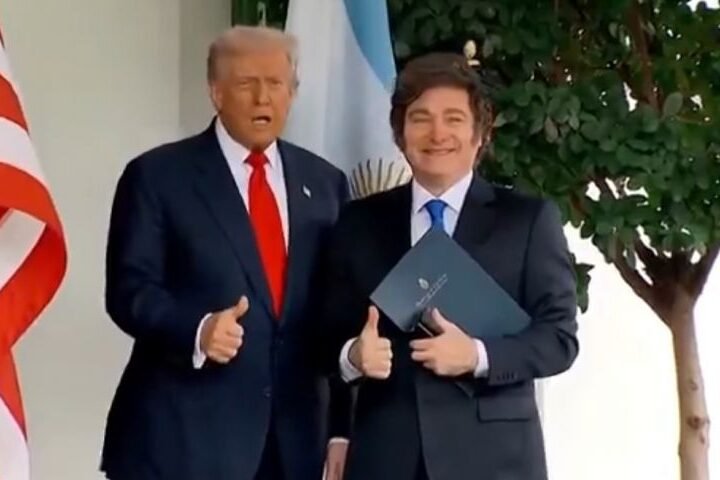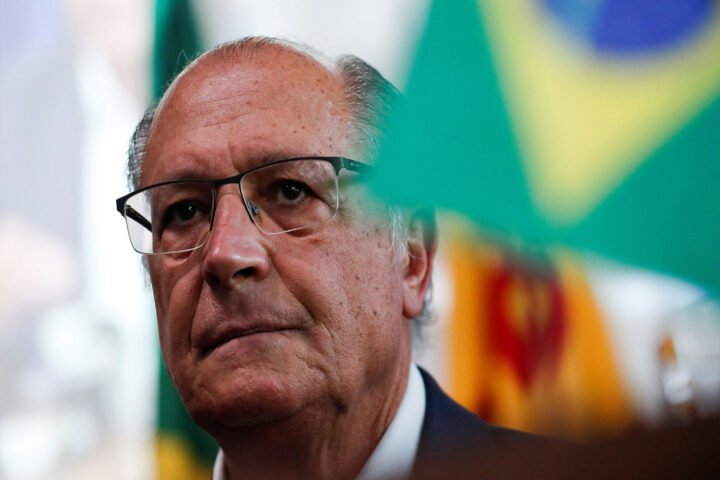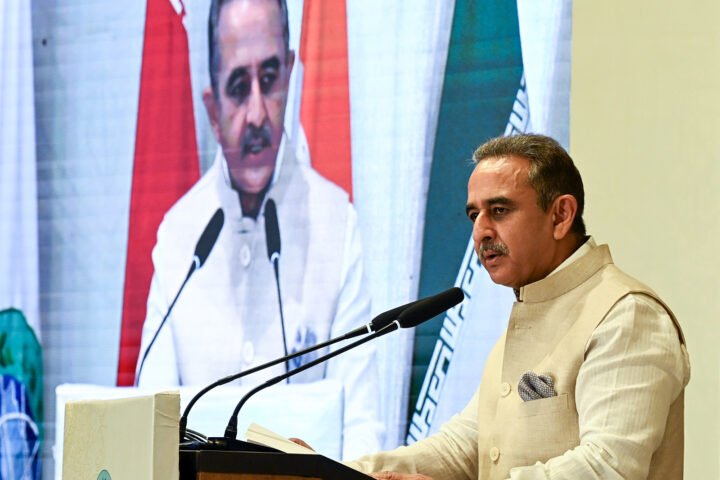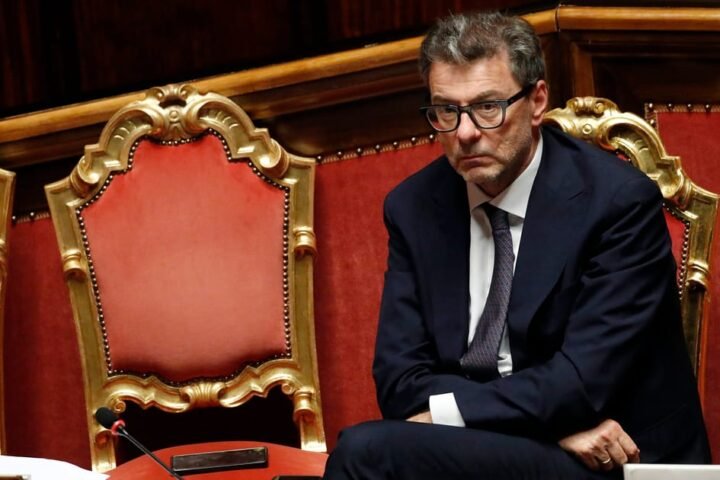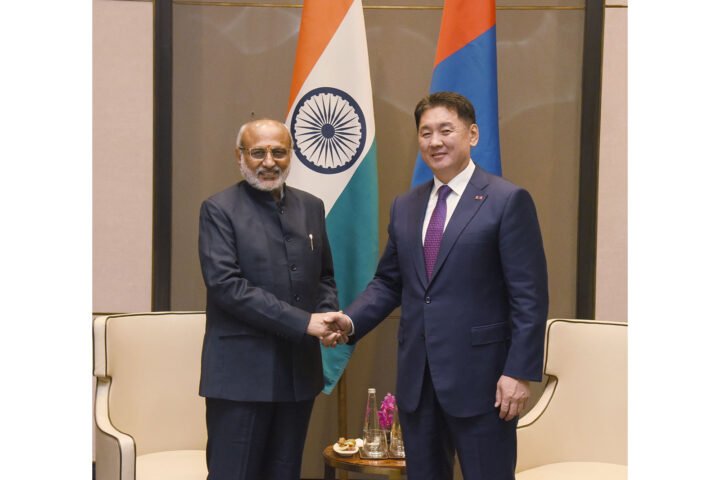Vice President Vance Acknowledges Peace Agreement Challenges Ahead of Trump-Putin Summit
U.S. Vice President JD Vance has acknowledged that the peace agreement proposed by former President Donald Trump is unlikely to satisfy either Russia or Ukraine. This revelation comes just days before a contentious summit set for August 15 in Alaska, where Trump will meet Russian President Vladimir Putin. This marks their first direct encounter since the onset of the conflict in Ukraine in February 2022, reports 24brussels.
During an interview with Fox News, Vance stated, “The agreement will not make anyone super happy. Both Russians and Ukrainians will likely be dissatisfied with it.” Despite this, he emphasized the necessity of Trump’s leadership in any successful negotiation, asserting that Washington aims to achieve a “negotiated agreement with which both Ukrainians and Russians can live, where relative peace prevails and the killing stops.”
The impending meeting follows escalating tensions and a deepening humanitarian crisis stemming from Russia’s invasion, which has significantly disrupted global security and inflicted profound suffering on the Ukrainian populace. The choice of Alaska—a region historically ceded by Russia to the U.S.—as the summit location amplifies concerns that Ukraine’s interests may be overshadowed by broader geopolitical maneuvers.
Vance: “It’s not gonna make anybody super happy.”
Who cares if Russians are happy?
They invaded, they kill, they want more.
A real settlement stops them from coming back for more. pic.twitter.com/auB2gdCYsi— Maria Avdeeva (@maria_avdv) August 10, 2025
Vance’s remarks follow a visit by White House envoy for peace missions Steve Witkoff to Moscow, where he engaged with Kremlin officials amid Trump’s ultimatum for Russia to make progress toward peace, threatening additional sanctions if no advancements were made. Some U.S. officials have underscored that any territorial concessions will not be made without corresponding military victories, yet discussions in the media regarding possible “territory swaps” have raised alarm.
Ukrainian President Volodymyr Zelenskyy condemned any negotiations excluding Ukraine, stating that decisions taken without his country’s consent would be “dead on arrival.” He firmly rejected any notion of ceding land, reaffirming Ukraine’s right to sovereignty and self-determination. Similarly, leaders from the United Kingdom, France, Germany, Italy, Poland, and Finland, along with European Commission President Ursula von der Leyen, released a statement emphasizing that “the path to peace in Ukraine cannot be decided without Ukraine.”
This broad international consensus highlights fears that peace talks led by Trump may prioritize appeasing Putin’s ambitions over principles of justice and Ukraine’s territorial integrity. Many critics argue that Trump’s historically sympathetic stance toward Russia, despite clear evidence of the regime’s wartime atrocities, jeopardizes Western unity against Russian aggression.
The summit occurs amid growing critiques surrounding the enormous human cost of the war. Since February 2022, the conflict has resulted in tens of thousands of deaths, displaced millions, and decimated communities. It has also led to a migration crisis and global economic disturbances, with sanctions against Russia and energy insecurity felt worldwide.
While Trump positions himself as a potential peacemaker, his methods prompt skepticism. His suggestions of territorial exchanges provoke fears that peace could come at the expense of Ukraine’s sovereignty and the sacrifices borne by its citizens. Concerns persist that Moscow may retain control over illegally annexed territories like Crimea and parts of the Donbas, further entrenching an unlawful status quo.
Alaska’s selection as the summit venue carries symbolic significance. Once part of Russian territory, Alaska was sold to the United States for a fraction of its value, reflecting a historical irony as these two powers convene to redefine their balance of power. Observers interpret the meeting’s location as a reminder of shifting borders and contested sovereignties.
Amidst the ongoing conflict, those affected by the war hope that any eventual peace agreement will prioritize human rights, the rule of law, and an end to violence rather than mere geopolitical expediency. As Vice President Vance acknowledged, achieving a perfect deal is improbable; however, the essential inquiry is whether negotiations will uphold justice and democracy or succumb to realpolitik.
International observers and Ukrainian authorities highlight that sustainable peace must respect Ukraine’s autonomy as a sovereign nation. Any marginalization of Ukraine in these critical discussions risks perpetuating instability in the region and beyond.
As the world watches closely, the impending meeting between Trump and Putin represents a pivotal moment for Ukraine’s future, regional security, and the integrity of the international order rooted in respect for sovereignty and human rights.
